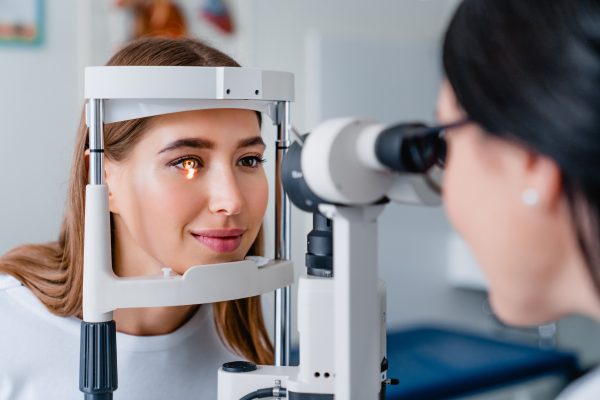Astigmatism is one of the most common vision afflictions, but many people still don’t know exactly what it means. If you are wondering if your blurred vision is a result of this condition, it’s important that you pay a visit to your eye doctor. Below, we’ve outlined some basic information to help you understand what astigmatism is, how it can be diagnosed and what LASIK treatments are available for you.
What is astigmatism?
According to the American Academy of Ophthalmology, astigmatism is an “imperfection in the curvature of your eye.” This means that the curvature of the front surface of one eye, known as the cornea, is different from the shape of the cornea in the other eye. A healthy cornea is smooth in all directions, but those with astigmatism may have corneas that are irregularly shaped, resulting in blurred vision. Unlike nearsightedness or farsightedness, astigmatism blurs eyesight at all distances.
If you’ve been diagnosed with astigmatism, there’s no cause for panic. The American Optometric Association points out that the condition is very common – in fact, most people have some form astigmatism, though not all will require treatment.
How is astigmatism diagnosed?
Optometrists have a number of tools they can use to diagnose astigmatism. This is usually done during a comprehensive eye exam, which is why it’s important to visit your eye doctor at least once a year. During the test, your optometrist may carry out a visual acuity screening, and he or she may use what’s known as a keratometer to measure the curvature of your cornea. Finally, your doctor will use a tool called a phoropter, which involves putting several lenses in front of your eyes, to see how you are able to focus light.
Can LASIK Fix An Astigmatism?
Fortunately, astigmatism is a highly treatable condition. Eyeglasses and contact lenses can offer a solution. Others may prefer to undergo LASIK vision correction. A custom LASIK procedure can reshape the cornea, smoothing out the surface and restoring some or all of your vision. If you’re interested in corrective laser eye surgery, bring it up with your doctor during your next visit. He or she will be able to evaluate your eyes to see if you are a strong candidate for the procedure.
Schedule A FREE LASIK Consultation Today
Categories:



